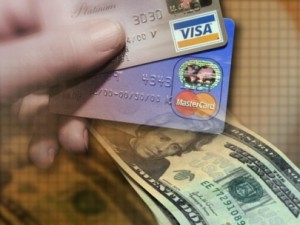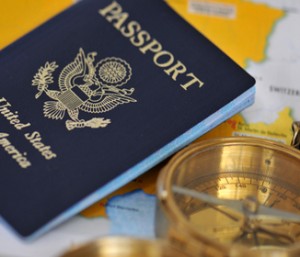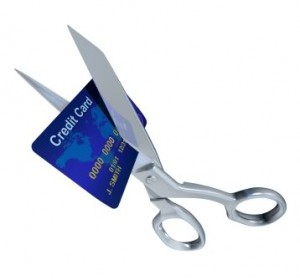March 14, 2012
 The popularity of retail cards has surely risen over recent years, and not without any good reason. They offer customers with numerous advantages and money-saving options. Store cards are usually considered to be a good way to build your credit history. Since it has low merchant risk, they are much easier to obtain if you do not have a credit history, or if you do not have a particularly good one. Often there are a number of special deals that do the rounds, especially during holiday seasons. Deals such as no-interest and shopping passes can really help in cutting back those costs and yet allowing you to shop freely for gifts for your family and friends!
The popularity of retail cards has surely risen over recent years, and not without any good reason. They offer customers with numerous advantages and money-saving options. Store cards are usually considered to be a good way to build your credit history. Since it has low merchant risk, they are much easier to obtain if you do not have a credit history, or if you do not have a particularly good one. Often there are a number of special deals that do the rounds, especially during holiday seasons. Deals such as no-interest and shopping passes can really help in cutting back those costs and yet allowing you to shop freely for gifts for your family and friends!
The advent and rise of store cards has benefited a number of consumers. However, though the benefits sound attractive, there are often hidden cons that customers should be aware of. These cards usually have a much higher interest rate; hence, if you are not careful about paying off your balance on time, this could really cost you. In addition, retailers have the right to remove some privileges or even charge extra penalty fees if you do not meet the terms of the retail card. Hence, your gains can actually turn into huge losses if you are not vigilant about these issues of a retail card.
If you travel abroad regularly, it is far convenient to use credit cards or other forms of plastic for your travel expenses. Carrying cash always has come with the danger of it being stolen or lost, and traveler checks usually incur transaction costs. This is usually the case, however, travelers should be aware of the fact that banks have started targeting these foreign travelers for additional fees and surcharges to make up for the new card rules that are squeezing the banks profit margins. Hence, travelers should keep an eye on such foreign transaction fees before traveling, and hence, choose the best method to meet their travel expenses.
But, let us take a look at card history too
The earliest use of the term ‘Card’ can be found in Edward Bellamy’s utopian novel ‘Looking Backward’ way back in 1887. This forward thinking novelist mentions this term eleven times in his book. In this novel, Bellamy proposes an economic system devoid of paper or any other form of physical money. Although the working of Bellamy’s card is very different from the current form, the concept of maintaining a credit with a central authority and using this credit to buy goods was first introduced by him. And for this, Bellamy takes all the credit for coining the term card.
Bellamy’s Credit card system
In 1887, Utopian novelist Edward Bellamy proposed an economic system that did away with paper money as we know it. In this system, Bellamy proposed that at the beginning of the financial year each citizen be allocated his share of the national annual product. In today’s world, this would mean allocating the per capita income or perhaps a portion of the GDP. This amount would be credited to the person’s card, which the person would use to buy goods as and when required. All services would be offered towards the state or country and would not be charged to individuals. This system promoted equality of all individuals and vocations, while today’s cards divide individuals based on credit limits that are fixed as per the individual’s net worth.
Tags:
Card,
credit,
Credit Card,
Credit card retail,
finance
March 10, 2012
 The global credit card processing company Visa has its origins in humble beginnings. Bank of America introduced one of the first credit card programs, BankAmericard, in Fresno, California in 1958. The bank originally planned to keep its credit card business within the state of California. As time passed, Bank of America slowly began to make deals with out-of-state banks. Over the next several years, numerous banks across the United States would license the BankAmericard system. As the number of banks increased, a suggestion eventually arose to start an association of banks.
The global credit card processing company Visa has its origins in humble beginnings. Bank of America introduced one of the first credit card programs, BankAmericard, in Fresno, California in 1958. The bank originally planned to keep its credit card business within the state of California. As time passed, Bank of America slowly began to make deals with out-of-state banks. Over the next several years, numerous banks across the United States would license the BankAmericard system. As the number of banks increased, a suggestion eventually arose to start an association of banks.
Association
This association would take the form of a joint venture. All members would have the advantage of a centralized payments system while having the freedom and leniency to compete on a fair basis for their own benefit. This arrangement continued into 1970 when the newly formed National BankAmericard, Inc. received control of BankAmericard and passed it to member banks using the system inside the United States. Bank of America still continued to issue licenses for BankAmericard in different countries. By 1972, 15 countries had been issued licenses. A multinational corporation, IBANCO, was established in 1974 to manage the BankAmericard program in foreign countries.
IBANCO
IBANCO decided to form a single corporation in 1976 despite the hesitancy that surrounded using Bank of America’s name internationally. BankAmericard became Visa U.S.A. in 1976, and IBANCO became Visa International. The name “Visa” was adopted because the word is pronounced the same in many different languages.
Growth Period
Phenomenal growth over the past 30 years led to Visa’s initial public offering (IPO) on March 18, 2008 for $17.9 billion, the largest IPO in United States history. Technological improvements include a worldwide network of automated teller machines (ATMs) providing cash globally to personal and business travelers. Visa was one of the first companies to make a coordinated effort to crack down on credit card fraud. In 2007, Visa restructured itself, creating a new global corporation: Visa, Inc. The Visa Europe brand name remains the same as a member-owned entity.
Reputation
The ability to settle transactions in multiple currencies and having access to cash all over the world make Visa one of the most trusted names in international commerce. Today, Visa, Inc. is a trillion-dollar global entity processing transactions for billions of customers. As of March 31, 2011, 1.87 billion Visa cards are in use worldwide. In the four quarters ending on June 30, 2011, Visa processed a total of 74 billion transactions with a total volume including cash transactions and payments of $5.6 trillion. Visa provides an indispensible service that many customers use to buy essentials like food, shelter and gasoline. Today, Visa, Inc. is a brand name that rightfully commands global respect and ensures its position as a top-rated digital currency company.
Tags:
Card,
Credit Card,
Credit Cards,
Credit Cards Compare,
Visa
December 30, 2011
 Statistics provided by the US Census Bureau show that the number of credit cards owned by American consumers is increasing. Many people have credit cards as an emergency backup resource when they need extra funds. However, with high credit card fees and interest rates, your credit card debt can get out of control. Instead of dealing with the stress of your increasing debt, consider canceling your credit cards for the following reasons:
Statistics provided by the US Census Bureau show that the number of credit cards owned by American consumers is increasing. Many people have credit cards as an emergency backup resource when they need extra funds. However, with high credit card fees and interest rates, your credit card debt can get out of control. Instead of dealing with the stress of your increasing debt, consider canceling your credit cards for the following reasons:
Eliminate your debt: Not owning a credit card means you don’t have unnecessary debt. If you max out one credit card and decide to pay off your debt with another credit card, you’re still left with credit card debt. This vicious cycle can escalate and leave you in a financial mess.
Maintain your budget: Staying within your budget is easier when you use cash for your purchases. Physically seeing the money you have makes you more reluctant to frivolously spend it. Handing over a credit card each time you make a purchase doesn’t make you realize how much you’re spending altogether. The shock sets in once you get your credit card statement. If you want to use a card to make your purchases and stay within your budget, use a prepaid card. Store-bought prepaid cards only allow you to spend the amount of money you put on them. When you run out of funds on your prepaid card you can replenish it as your budget allows.
Protect yourself: Each time you hand over your credit card to make a purchase you give others access to your credit card information. Whether you purchase items online or in a store, you subject yourself to identity theft. When you use cash there’s no need to disclose personal information. Identity theft can create a financial nightmare that leaves you with debt that can take years to clear up.
Avoid temptation: Credit card companies often offer tempting bonuses to attract consumers. Frequent flyer miles and points you can accrue when you use your card are not worth the hassle of paying back the money owed. Annual fees and interest rates quickly add up and add to your financial stress. Avoid using your card or acquiring one just to gain points or bonuses.
Save up: Instead of keeping an emergency credit card on hand, get rid of it. Instead, start saving up so you have at least $1000 available for emergencies.
Tags:
budgeting,
credit,
Credit Card,
credit card consolidation,
Credit Card Debt,
credit card debt consolidation,
credit card debt settlement,
credit settlement,
financial planning,
money / finance,
personal finance,
planning
 The popularity of retail cards has surely risen over recent years, and not without any good reason. They offer customers with numerous advantages and money-saving options. Store cards are usually considered to be a good way to build your credit history. Since it has low merchant risk, they are much easier to obtain if you do not have a credit history, or if you do not have a particularly good one. Often there are a number of special deals that do the rounds, especially during holiday seasons. Deals such as no-interest and shopping passes can really help in cutting back those costs and yet allowing you to shop freely for gifts for your family and friends!
The popularity of retail cards has surely risen over recent years, and not without any good reason. They offer customers with numerous advantages and money-saving options. Store cards are usually considered to be a good way to build your credit history. Since it has low merchant risk, they are much easier to obtain if you do not have a credit history, or if you do not have a particularly good one. Often there are a number of special deals that do the rounds, especially during holiday seasons. Deals such as no-interest and shopping passes can really help in cutting back those costs and yet allowing you to shop freely for gifts for your family and friends!


Recent Comments